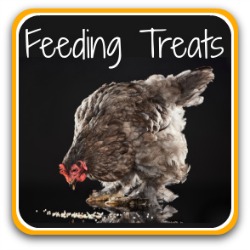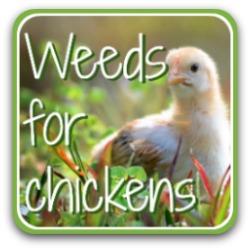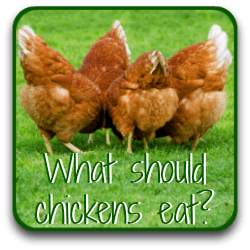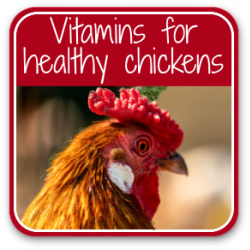Can chickens eat watermelon?
Yes – and they absolutely love it!
Watermelon is so much more than a tasty treat for chickens. It's also full of nutrients which can help your flock stay cool and hydrated during hot summer months.
🪶 Featherlight Takeaways.
Quick insights from this article – especially helpful if you need a nutritious treat to cool chickens quickly.
- Yes, chickens can eat watermelon — and they love it! The flesh, seeds, and even rind are all safe and nutritious in moderation.
- Watermelon is over 91% water, making it one of the best natural ways to hydrate your flock in hot weather.
- The seeds and rind are surprisingly nutritious, supporting egg production, digestion, and even helping chickens stay cool.
- Feed it fresh and in small portions — too much can cause diarrhea due to high water and sugar content.
- Try my two easy recipes to help your chickens eat every part of the melon — especially the rind!
But what about the rind? The seeds? Are baby chicks allowed to eat watermelon? Is it true that it can actually improve your chickens' health? And will chickens actually eat watermelon? Do they enjoy it?
If you've ever made the mistake of eating a piece of watermelon in front of your chickens, you'll know how quickly they come running.
Mine would rip it right out of my hands if they could – here's the evidence!
 Do chickens like watermelon? My chickens say a definite yes!
Do chickens like watermelon? My chickens say a definite yes!Let’s start with the nutritional benefits.
Is watermelon good for chickens?
Yes – and not only because they love the taste.
As more chicken keepers explore less chemically-based ways to boost flock health, watermelon along with many other natural foods has come under scientific scrutiny — and the results are promising.
Several studies which looked at its effects on chickens all found that watermelon is rich in nutrients which can support chickens' immune system, hydration, and overall health.
Here's what that research tells us.
Watermelon nutrition for chickens.
- Anti-oxidants: watermelon contains more antioxidants than any other fruit or vegetable. These help protect against cell damage and support long-term health.(1)
- Lycopene: a powerful carotenoid which boosts the immune system.
- Vitamin 'C': chickens struggle to produce this during heat stress. Watermelons provide a natural source.
- Electrolytes: high levels of potassium and magnesium help maintain hydration and reduce the risk of heat exhaustion, making watermelon a natural source of electrolytes.
- Low in fat: it has no saturated or trans fats and whilst it contains natural sugar, the downsides are far outweighed by its benefits(1).
Does watermelon keep chickens hydrated?
Absolutely.
Watermelon is over 91% water(1), making it one of the best ways of keeping chickens hydrated, especially when they're at risk of heat exhaustion.
🎥 Watch this quick video to see how much liquid is in a single piece — and how much chickens love it.
Keeping chickens cool in the summer.
Want more ways to protect your flock from a heatwave?
Check out my full summer chicken care guide.
When should you not feed watermelon to your chickens?
Although watermelon is very safe for chickens, it should – as with any treat – be fed in moderation.
Studies showed no harmful effects for chickens from eating watermelon itself(e.g. 2, 3, 4), but those who were fed too much commonly developed diarrhea, due to the fruit’s high water and sugar content(3).
So as a rule of "thumb"...
- keep portions small – no more than 10% of your chickens' diet
- use it as a treat, not a main food
- always feed it fresh – never when it's mouldy or has started to spoil.
Can baby chickens eat watermelon?
Yes. In small amounts, watermelon is safe for baby chicks.
Studies found no negative effects when chicks up to six weeks were fed watermelon flesh and seeds. However, their digestive systems are still developing and they're unlikely to eat the rind.
As always, moderation is key:
- watermelon is a treat: it should never replace a balanced chick starter feed which supports rapid growth
- start small: offer a small piece of ripe flesh once they're eating well
- chick grit: must always be available as soon as chicks eat anything other than their own feed.
My own flock didn't try watermelon until they were 17 weeks old. Even then, they weren't sure if it was food, or a terrifying red alien!
They did get over their fear quickly, as you can see from this short video...
Can chickens eat watermelon flesh?
Yes, and it seems to be their favourite part – for good reason.
Watermelon flesh is packed with the super-nutrients that support chicken health:
- Lycopene: a powerful anti-oxidant supporting healthy cells
- Beta-carotene: boosts immune health, and may depeen egg yolk colour
- Vitamin 'C': especially important during heat stress.
Ripe watermelon flesh – deep red rather than pale pink – contains higher levels of all these nutrients(1).
So always make sure your chickens get the most benefit by feeding watermelon when it's deep red and juicy.
 A ripe, richly red piece of watermelon flesh is the ideal treat for chickens.
A ripe, richly red piece of watermelon flesh is the ideal treat for chickens.Can chickens have watermelon seeds?
Yes – and mine always go for the seeds first, before starting on the flesh!
- Watermelon seeds are not only safe, but also extremely nutritionally rich.
- Studies show that small amounts included in feed (no more than 10%) improve both growth and egg production(e.g. 3, 4). They're a good source of:
- Protein: around 25%
- Calcium: supports strong bones and can improve egg production(3)
- Potassium: an electrolyte that helps with hydration.
Remember: moderation is the key.
 My chickens eat the watermelon seeds before anything else!
My chickens eat the watermelon seeds before anything else!Do watermelon seeds help de-worm chickens?
No.
There's no scientific evidence at all that watermelon seeds act as a natural de-wormer.
You may read some backyard chicken keepers saying their flocks stay worm-free because they regular eat watermelon. But it’s more likely to be due to other factors such as good hygiene, pasture rotation – or luck.
Watermelon seeds are nutritious, but they don’t contain any known anti-parasitic compounds.
If you're concerned about worms, use proven treatments (affiliate link) or natural alternatives backed by research.
Can chickens eat watermelon rind?
Yes – although they tend to leave it behind.
The rind (or skin) is thick and tough, so most chickens won't peck at it unless it's cut or prepared differently – as you can see from this piece, left by my own chickens for the ants to go to work on.
 This is how my chickens leave watermelon – but the rind is good for them!
This is how my chickens leave watermelon – but the rind is good for them!But here's the surprise: the rind is one of the most nutritious parts of the fruit.
- It's richer in L-citrulline (L-cit) than the flesh or the seeds(2).
- It also improves gut health and digestion by reducing harmful bacteria in the digestive tract(6).
So, rather than composting melon rind, consider feeding it to your flock.
 Watermelon rind: you need recipes for chickens to eat it!
Watermelon rind: you need recipes for chickens to eat it!But, given they don't particularly like it, how do you get chickens to eat the rind?
That's where my special recipes come in!
How do I serve watermelon to chickens, safely and easily?
Chickens are more than happy to eat watermelon just as it is – no preparation needed. Just slice it up and put it in the run.
For a smaller flock, even simpler: just halve a watermelon and let them dig out the seeds and flesh themselves!
 Offering it by the slice goes down well with my chickens!
Offering it by the slice goes down well with my chickens!But now you know that the rind is packed with nutrients and can help keep chickens cool, it’s worth going a step further and preparing it in a way your flock will actually eat.
Here are two cooling, nutritious, chicken-approved recipes to try — and honestly, you might enjoy them too!
🥗 Cooling watermelon salad for chickens – and you!
This hydrating salad uses some of the most water-rich summer fruits, with a cooling herb your chickens (and you!) will love.
Ingredients.
- 1 cup watermelon rind (flesh removed), grated
- 2 cups chilled watermelon flesh, cubed
- 1 chilled cucumber (with skin), diced
- 1 cup summer berries (blueberries, strawberries etc)
- ½ cup fresh mint leaves, chopped.
Instructions.
- Toss all the ingredients together in a bowl.
- Serve fresh, or...
- For an extra cooling treat, freeze for about an hour before serving.
🍹 Frozen watermelon Slushie for chickens.
This refreshing treat combines hydration, nutrients, and cooling ingredients into one super summer snack.
Research suggests that juiced fruits may be even easier for chickens to digest(1). Mint and honey both have natural cooling effects(7), and the whole blend is packed with antioxidants and electrolytes which help prevent cell damage(8, 9).
Ingredients.
- 4 cups of watermelon, including rind and seeds, cubed
- 2 tablespoons fresh mint leaves
- 1 tablespoon organic honey
- Six ice cubes.
Instructions.
- Add all ingredients to a blender and blitz till smooth.
- Pour into a freezable container, or a hollowed out melon half – or try an ice cube tray for easily shared portions.
- Freeze for two hours.
- Slightly soften to serve to your flock.

Want to save this article for later?
Here's a pinnable image for you to keep the information handy.
Frequently Asked Questions.
Are chickens allowed to eat watermelon?
Are chickens allowed to eat watermelon?
Yes. It's very high in nutritional value, and is also an excellent way of keeping them hydrated in hot weather.
Do chickens need grit to eat watermelon?
Do chickens need grit to eat watermelon?
Yes.
As soon as chickens eat anything other than commercially produced feed, they need grit to help them grind their food.
Can chickens eat Cantaloupe melons?
Can chickens eat Cantaloupe melons?
Yes, in moderation.
- Cantaloupe melons are richer than watermelon in vitamins 'A' and 'C', important for boosting the immune system and regenerating healthy cells.
- However, they also contain more sugar than watermelon. Excess sugar can lead to obesity, which is a known cause of Sudden Chicken Death Syndrome, and digestive problems which can lead to runny poop and, potentially, dehydration.
Are melon seeds safe for chickens?
Are melon seeds safe for chickens?
Yes, again in moderation.
- Melon seeds are a good source of vitamins 'A', 'C', and 'B'.
- Chickens love melon seeds – but don't feed more than once or twice a week.
- The seeds which are not safe for chickens are those from apples. Find out more about chickens and apples, here.
Is melon rind good for chickens?
Is melon rind good for chickens?
Try these articles for more chicken treat ideas.
Sources.
A lot of "facts" you'll find on the internet are often people's individual views, based on inaccurate information repeated from poor quality sources.
The information I provide in this article and others is based not just on my own experience, but on evidenced facts from scientific, peer-reviewed research and books from highly respected and experienced poultry keepers such as Gail Damerow.
Some of the trusted sources I have used in this article are these.
1. Nigala, J: Watermelon Nutrition: Benefits, Calories, Risks and More. Pub. Livestrong, 2021.
2. Linh, T. N et al: Dried Watermelon Rind Mash Increases Plasma L-Citrulline Level in Chicks. Pub. Journal of Poultry Science, 2018.
3. Undigweundeye Ukpanukpong, Dr. R: Effect of Watermelon Seed Powder on Growth Performance Parameters of Broiler Chickens. Pub. World Journal of Pharmaceutical Research, 2018.
4. Ahmed, Dr. H. S. E: Evaluation of watermelon seed meal as a feed for poultry. Pub. as a PhD thesis, 2004.
5. Azad, M. A. et al: Metabolic characteristics and oxidative damage to skeletal muscle in broiler chickens exposed to chronic heat stress. Pub. Journal of Comparative Biochemistry and Physiology, 2010.
6. Penaite, T. et al: Impact of Watermelon Rind and Sea Buckthorn Meal on Performance, Blood Parameters, and Gut Microbiota and Morphology of Laying Hens. Pub. Journal of Agriculture, 2022.
7. Ghosh, Anwesha: Why menthol chills your mouth when it's not actually cold. Pub. The Conversation, 2015.
8. Oke et al: Effect of different levels of honey on physiological, growth and carcass traits of broiler chickens during dry season. Pub. Acta agriculturae Slovenica, 2016.
9. Otu et al: Effect of honey-flavoured diets on the performance and relative organ weights of finisher broiler chickens. Pub. Nigerian Journal of Animal Production 2021.















